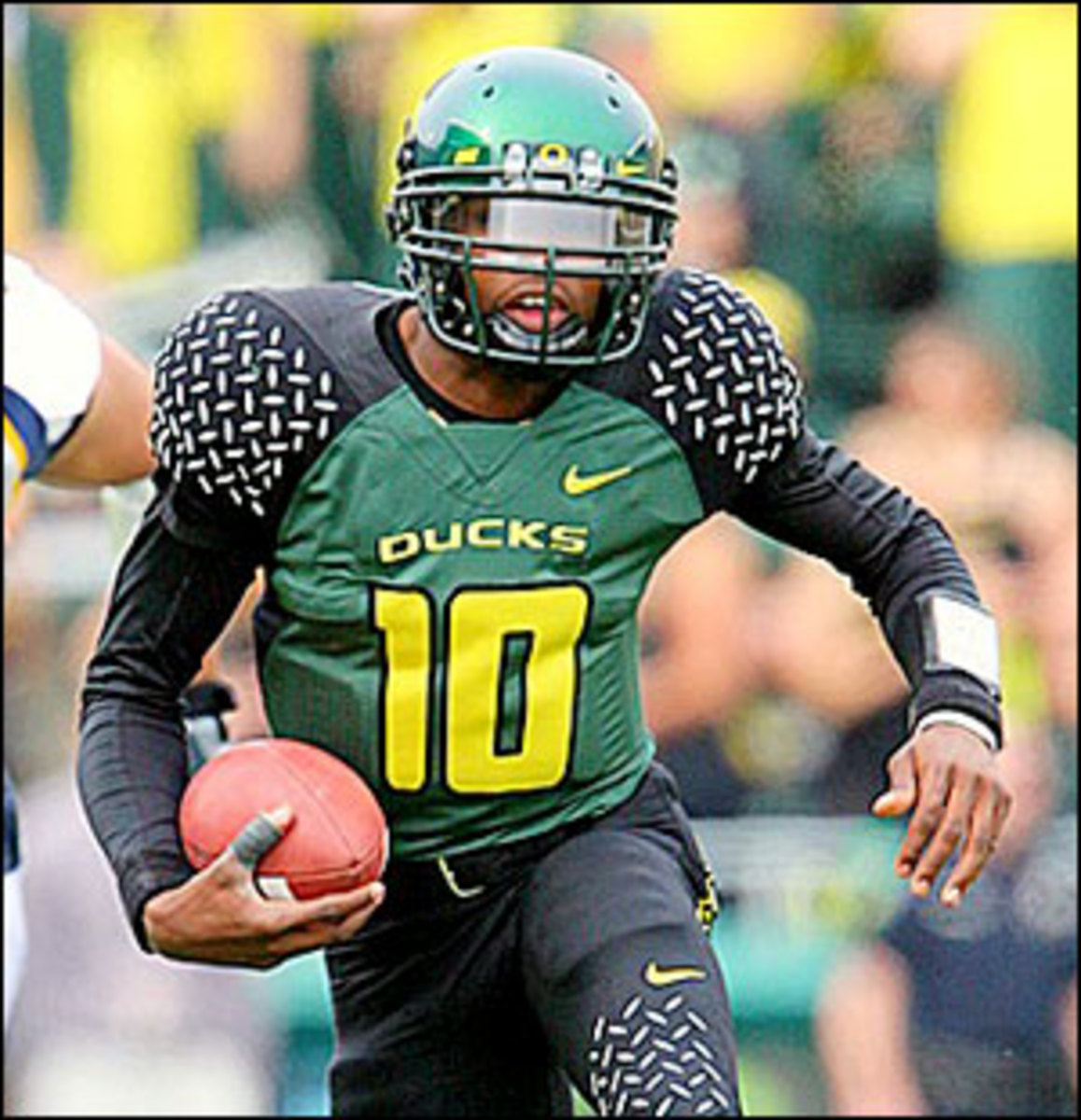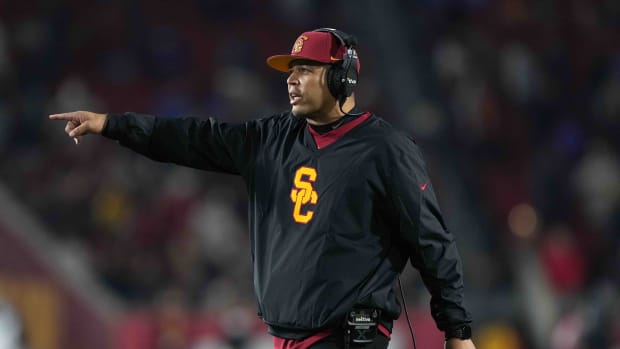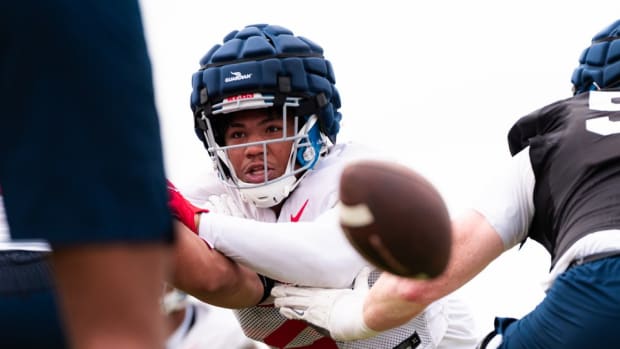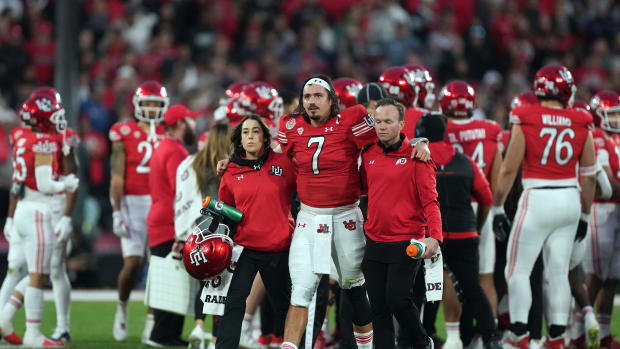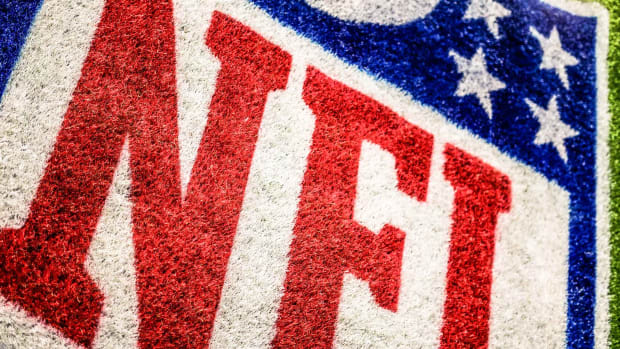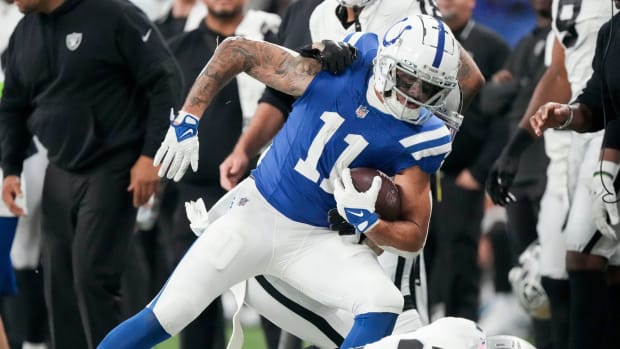Duck Season
Postcards from a coup d'état:
A lone white sneaker on the 20-yard line, property of one of the hundreds of fans who stormed the field at Autzen Stadium following Oregon's epoch-ending win over USC last Saturday....
A klatch of college-aged women bumping and grinding with the Oregon Duck before said mascot was plucked from his webbed feet for a session of crowd-surfing....
Pete Carroll on a folding chair a half hour after his Trojans' second loss in four games (a defeat that knocked them out of the national championship hunt), stooped and careworn, the USC coach looking every hour of his 56 years.
Before we trace Oregon's improbable arc from unranked to unstoppable, let us observe a moment of silence for the passing of a dynasty. Matthew Harper's last-minute interception of Southern California quarterback Mark Sanchez snuffed out more than a Trojans rally. The free safety's second red-zone pick of the second half tolled the death knell for one of the most impressive runs in modern college football history. Since 2002 USC has won two national titles and five Pac-10 crowns and played in five BCS bowls. The team that 22 months ago came within 19 seconds of a third straight national championship, that over a four-year stretch was a staggering 48-2, has lost four of its last 15 games.
The final score in Eugene was 24-17, but the difference between the teams was more than a touchdown. This was a matchup between a static program and a dynamic one, between the hunted and the hungry. Trojans fans need to start coping with this grim possibility: El Paso and the Sun Bowl.
It was Vince Young, you'll recall, who pulled the ball down and scored the go-ahead touchdown for Texas against USC with 19 seconds left in the January 2006 Rose Bowl. It was also Young whose angular frame filled the screen in Chip Kelly's office one day last week. Kelly, the Ducks' first-year offensive coordinator, was interested in seeing how Young repeatedly burned the Trojans with the zone-read option, which is also part of Oregon's package. Kelly, 43, replaced Gary Crowton, who last January left Eugene to take the same job at LSU.
The hiring of Kelly by Oregon head man Mike Bellotti seemed, at the time, a bit of a reach. He'd spent the previous eight seasons coordinating the offense at New Hampshire. While the Wildcats were a bona fide offensive juggernaut under Kelly, they were still a I-AA juggernaut. In his spare time he wandered around the country, dropping in on coaches whose schemes intrigued him, an antique scavenger moving from one garage sale to the next. "Everybody was always really receptive," he recalls, "because none of them ever played New Hampshire."
Yes, his spread attack was feared throughout the Colonial Athletic Association for its creativity and production, but his pedigree gave Ducks fans pause. The man who'd spent his days and nights scheming to beat the likes of Hofstra and Rhode Island would sink or swim in the Pac-10.
Kelly had a tougher time of it, frankly, in the CAA. Going into last Saturday, Oregon was averaging 551 yards and 46.6 points per game (both marks were second in the nation). As a tune-up for USC, the Ducks had racked up 661 yards of total offense in a 55-34 victory at Washington.
Tailback Jonathan Stewart had a career game against the Huskies, rushing for 251 yards. A 5' 11", 230-pound junior who runs a 4.34 40 and power-cleans 402 pounds, Stewart runs around and over people. He is also the beneficiary of a devilish spread attack directed by quarterback Dennis Dixon, whose spot-on reads and silky ball fakes freeze and confuse defenders who are not sure, half the time, which Duck has the ball.
While Stewart was expected to have a huge year, Dixon was even money to start the season on the bench. He threw nine interceptions against two touchdowns over the second half of 2006. He didn't help his cause when he announced in June that, rather than spending the summer throwing to his receivers, he'd be in Florida, playing for a minor league affiliate of the Atlanta Braves, who'd selected him in the fifth round of the amateur draft. "The timing was not good," recalls Bellotti. "I made the comment that I'd rather have him reading defenses than reading curveballs. But there was never a doubt about his commitment to football."
There was, in fact, an abundance of doubt. Dixon was flamed on message boards and talk radio. "I felt that baseball was a great opportunity," says the soft-spoken senior, a native of San Leandro, Calif., who earned his sociology degree in 3 1/2 years. Although he batted only .188 in 24 games while playing rightfield for the Braves' Gulf Coast League rookie team, Dixon did finish second on the club with a .342 on-base percentage. "Whether it's baseball or football, I'm just seizing the moment and having fun."
Dixon was 14 when he and his father, Dennis Sr., drove across the Dumbarton Bridge to check out the East-West Shrine Game at Stanford. Afterward they met Akili Smith, who'd starred at quarterback for Oregon and would be selected with the third overall pick of the 1999 NFL draft. "Meeting an African-American quarterback with the same kind of skills definitely encouraged him," says Dennis Sr. It also left the younger Dixon with a soft spot for the Ducks.
After Oregon won the Fiesta Bowl following the 2001 season, the program's fortunes waned. The Ducks dropped 25 games over the next five years. In '03 they lost a close game to a Utah club still a year away from its BCS-busting 13-0 run. Bellotti was struck by the spread offense employed by Utes coach Urban Meyer. "Seeing the problems [the spread] created for us, the frustration and consternation of our defensive coaches, I said, 'There's something to this.' "
With Carroll stockpiling five-star recruits down south, Bellotti was intrigued by an offense that allowed teams to compete against squads that had better athletes. He brought in Crowton from BYU to install the spread before the '05 season. Kelly has shown a grasp of the spread that is equal to, if not better than, his predecessor's, and he's been far more adept at handling Dixon, whose confidence was shot by the end of last season.
"I don't know what went on here last year," Kelly says, "and I don't really care. All I know is, Dennis has been coachable and he has a tremendous work ethic. He's everything you want. And we hit the ground running."
Running and passing. Dixon rushed for 141 yards and threw for another 134 in Oregon's season-opening rout of Houston. The Ducks made a more forceful statement on the road the following week, handing Michigan its most lopsided loss in 39 years. Oregon beat Fresno State and Stanford by a combined score of 107-52 but returned to earth on Sept. 29. With his team trailing 31-24 in the final minute against Cal, wideout Cameron Colvin was clobbered while trying to reach the ball across the goal line. He fumbled through the end zone; the Bears ran out the clock; and the Ducks' loftiest ambitions took a severe hit.
Or so it seemed. The Pac-10's game of the year, it turns out, will take place not in L.A. or Berkeley, but in Eugene this Saturday, when undefeated Arizona State visits. Maybe that's why there was a distinct lack of postgame euphoria among the Oregon players following the program's first win over USC in six years. Didn't they realize they'd rung in a new order in college football?
"If we've learned anything this year," says Stewart, "it's that you can't lean on what you did in the past."
In addition to losing the game, the Trojans lost the turnover battle for the fourth time this season. USC rushed for just 101 yards, two fewer than Stewart. The underwhelming numbers only hint at the struggles of an offense whose lack of imagination was thrown into sharper relief by the creativity of the Ducks' attack. Whether it was Dixon dancing through the Trojans' defense or Carroll's postgame anguish as he spoke of "trying to figure it out," the message was the same.
It's someone else's turn.
